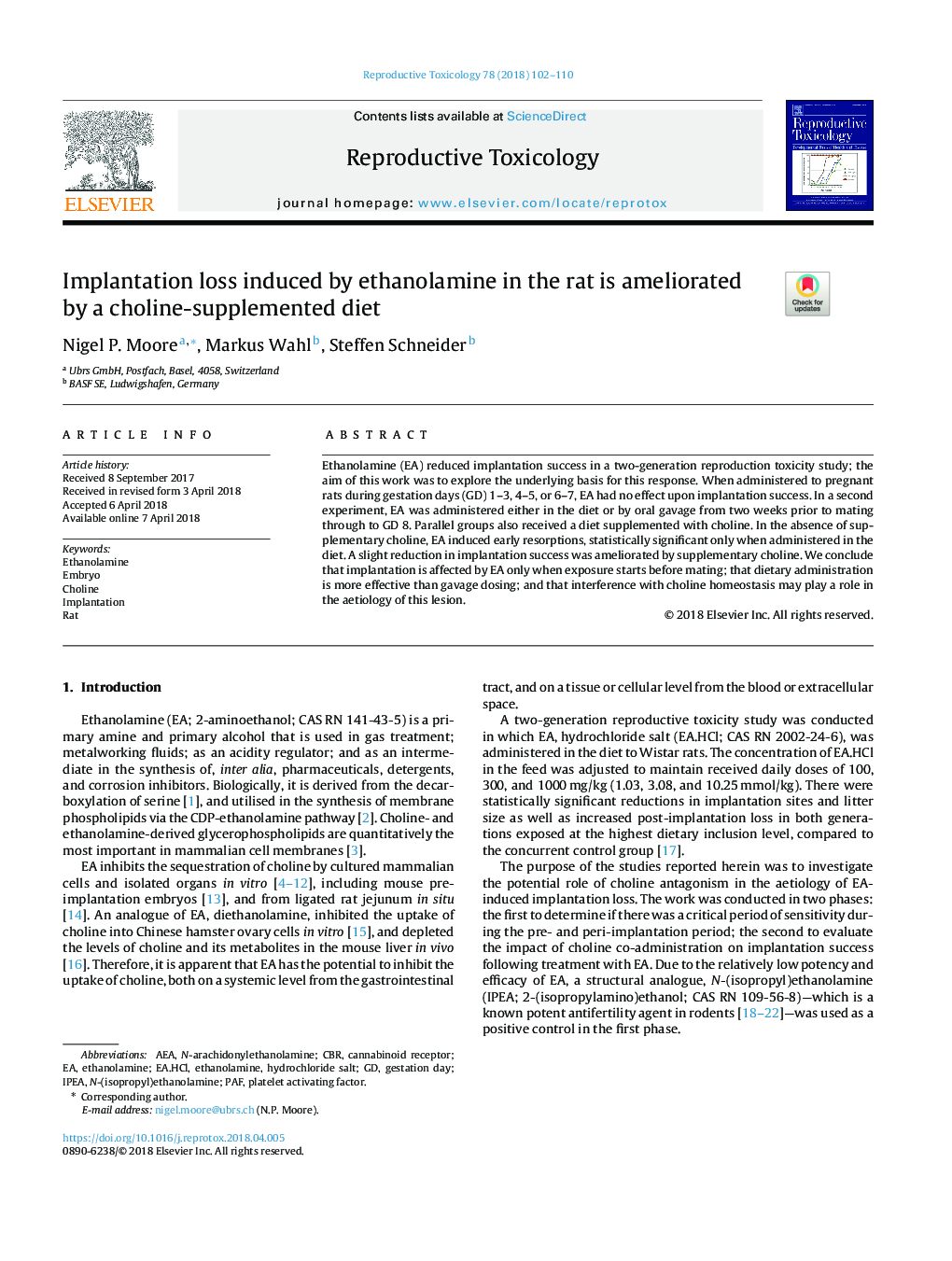| Article ID | Journal | Published Year | Pages | File Type |
|---|---|---|---|---|
| 8552301 | Reproductive Toxicology | 2018 | 9 Pages |
Abstract
Ethanolamine (EA) reduced implantation success in a two-generation reproduction toxicity study; the aim of this work was to explore the underlying basis for this response. When administered to pregnant rats during gestation days (GD) 1-3, 4-5, or 6-7, EA had no effect upon implantation success. In a second experiment, EA was administered either in the diet or by oral gavage from two weeks prior to mating through to GD 8. Parallel groups also received a diet supplemented with choline. In the absence of supplementary choline, EA induced early resorptions, statistically significant only when administered in the diet. A slight reduction in implantation success was ameliorated by supplementary choline. We conclude that implantation is affected by EA only when exposure starts before mating; that dietary administration is more effective than gavage dosing; and that interference with choline homeostasis may play a role in the aetiology of this lesion.
Keywords
Related Topics
Life Sciences
Environmental Science
Health, Toxicology and Mutagenesis
Authors
Nigel P. Moore, Markus Wahl, Steffen Schneider,
